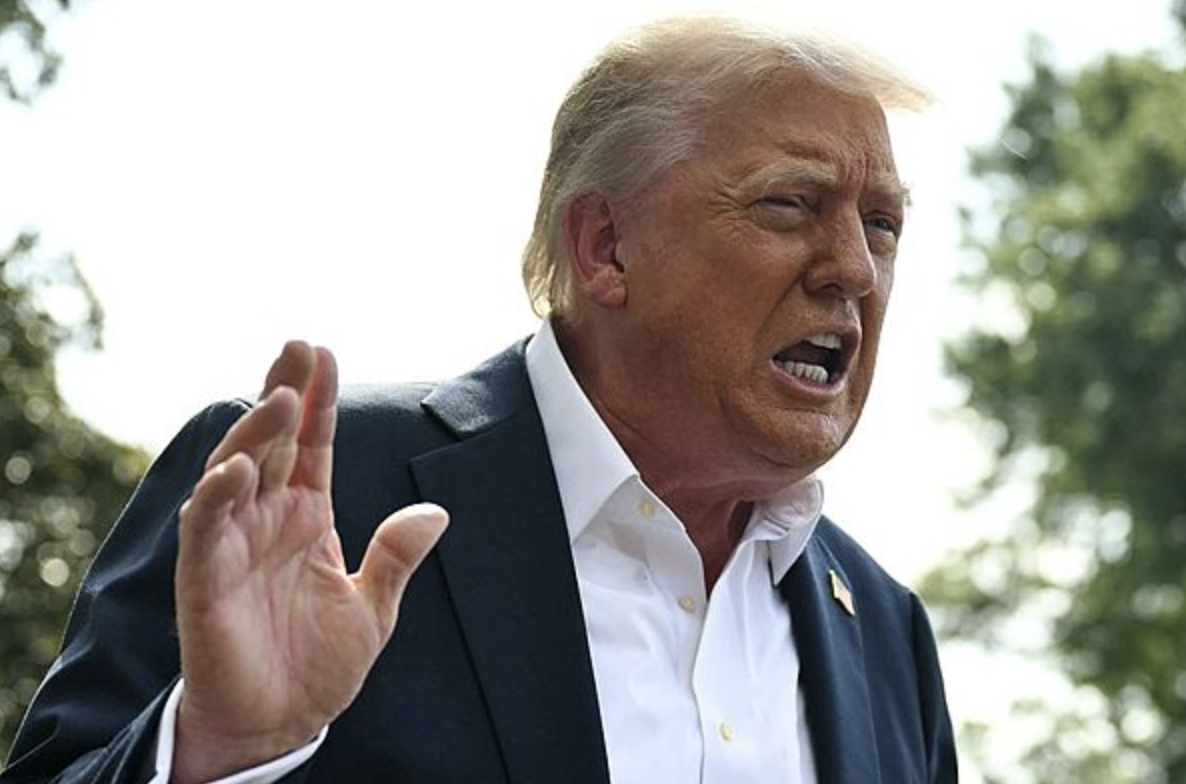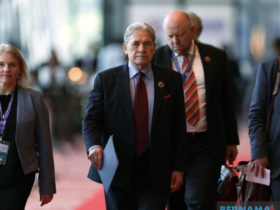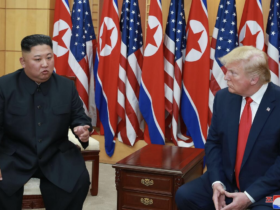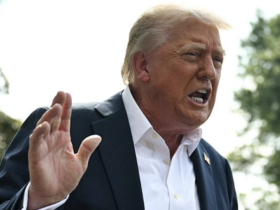BEIJING, July 13 – U.S. President Donald Trump on Saturday threatened to impose 30 percent tariffs on imports from Mexico and the European Union starting August 1, after weeks of negotiations with the major U.S. trading partners failed to reach a comprehensive trade deal, CGTN reported.
The new tariffs were announced in letters addressed to European Commission President Ursula von der Leyen and Mexican President Claudia Sheinbaum. The letters were posted on Trump’s social media platform, Truth Social, sparking outrage among the EU and Mexico.
EU says it will take all necessary steps to safeguard interests
European Commission President Ursula von der Leyen warned on Saturday that the tariffs would “disrupt essential transatlantic supply chains to the detriment of businesses, consumers and patients on both sides of the Atlantic.”
While emphasizing the EU’s continued commitment to a negotiated solution, she said the bloc “will take all necessary steps to safeguard EU interests, including the adoption of proportionate countermeasures if required.”
European lawmakers and national leaders voiced growing frustration, with many urging immediate retaliatory steps.
Bernd Lange, chair of the European Parliament’s committee on international trade, said the U.S. letter is “both impertinent and a slap in the face” after weeks of negotiations.
He urged the EU to begin retaliatory measures on Monday as scheduled, stating that “the period of waiting is over.”
European Council President Antonio Costa said the tariffs would drive inflation, fuel uncertainty and stall growth. “The EU remains firm, united and ready to protect our interests,” he said, urging progress toward a “fair agreement” with Washington.
French President Emmanuel Macron expressed his “strong disapproval” of the U.S. move and called on the EU to speed up preparing “credible countermeasures” using all tools available, including anti-coercion, if talks fail.
Swedish Prime Minister Ulf Kristersson condemned the move as a “unilateral escalation” and said the EU is prepared to respond with tough countermeasures if necessary.
“Everyone loses out from an escalated trade conflict, and it will be U.S. consumers who pay the highest price,” he warned.
Czech Prime Minister Petr Fiala criticized the U.S. tariffs for negatively impacting transatlantic trade and called for “unity and determination” to protect the EU’s interests.
European industries voiced alarm over the fallout, particularly in sectors tightly integrated with the U.S. market.
Germany’s major industry lobby group, the BDI, called the U.S. move “an alarm signal,” warning that it could derail recovery and undermine innovation on both sides of the Atlantic.
“Tariffs as a means of exerting political pressure lead to higher costs, jeopardize jobs and undermine international competitiveness, both in Europe and in the United States,” said Wolfgang Niedermark, a senior BDI executive.
Isabel Schnabel, a European Central Bank board member, said the tariffs could trigger medium-term inflation and supply chain shocks.
The automotive sector, which has already been deeply integrated with the EU and the U.S., is already feeling the pain.
Slovakia, one of Europe’s top car-exporting nations, reported a noticeable drop in orders for the coming third quarter. Economy Minister Denisa Sakova said relocating production to the U.S. is not feasible in the short term and emphasized that the damage has already begun.
The German Association of the Automotive Industry (VDA) said the cost to manufacturers is already in the billions and climbing daily.
“It is regrettable that there is a threat of a further escalation of the trade conflict,” said VDA President Hildegard Mueller.
“The costs for our companies are already in the billions, and the sum is growing every day,” she said, noting that suppliers are also significantly affected by the import duties.
Emanuele Orsini, president of Confindustria, Italy’s major association representing manufacturing and service companies, condemned the U.S. approach as “unpleasant.” Meanwhile, Paolo Mascarino, president of the Italian food and drink industry federation Federalimentare, said the tariffs “exceed any threshold of tolerability” and would trigger significant drops in exports.
Dan O’Brien, chief economist at the Institute of International and European Affairs, said the U.S. move is “provocative” and has significantly raised the risk of a wider economic confrontation between the two economies.
Mexico slams Trump’s latest tariff threat as ‘unfair deal’
Mexico slammed Trump’s latest threat of 30 percent tariffs as an “unfair deal,” according to a government statement.
Trump on Saturday criticized Mexico for its “failure to stop the cartels” from smuggling drugs, including fentanyl, into the United States and accused the country of not doing enough to cooperate with Washington in curbing illegal immigration.
Mexico’s Ministry of Economy said on Saturday that it was informed that the U.S. would send a letter during a meeting on Friday with U.S. officials.
“We mentioned at the roundtable that it was unfair treatment and that we did not agree,” the Mexican economy and foreign ministries said in a joint statement, noting that the country is “already in negotiations with the U.S.” to avoid the tariffs going into effect on August 1.






















Leave a Reply